Sex, infighting, lies and videotape: The 2020 Paris mayoral battle (1)
On June 28, the longest municipal elections in French history came to an end. At a time when the black cloud of the epidemic is about to sweep across Europe, the French government insisted on holding the first round of voting on March 15, but then the situation took a turn for the worse, and the whole country entered a state of home isolation. After a lapse of three and a half months, the second round of voting was completed.
When future generations look back on the 2020 election, the biggest winner in the memory may not be any one candidate, but the new crown virus.
Of course, there are winners and losers in political battles. The borough elections continued a trend seen in last year's European Parliament elections, which saw the Green Party's meteoric rise. In Paris, as expected, incumbent mayor Anne Hidalgo came out on top with 48.49 percent of the vote, more than the two main challengers combined, and in the July 3 city council vote Re-elected successfully. For the next six years, the French capital will remain on the Socialist map.
However, in the past six months (or even two years), the battle over the mayor of Paris among various forces in the French political arena has not been as turbulent as the vote counts suggest.
Behind Hidalgo's seemingly deadly victory were various "god assists" from his opponents, as well as a "green wave" that swept across France.
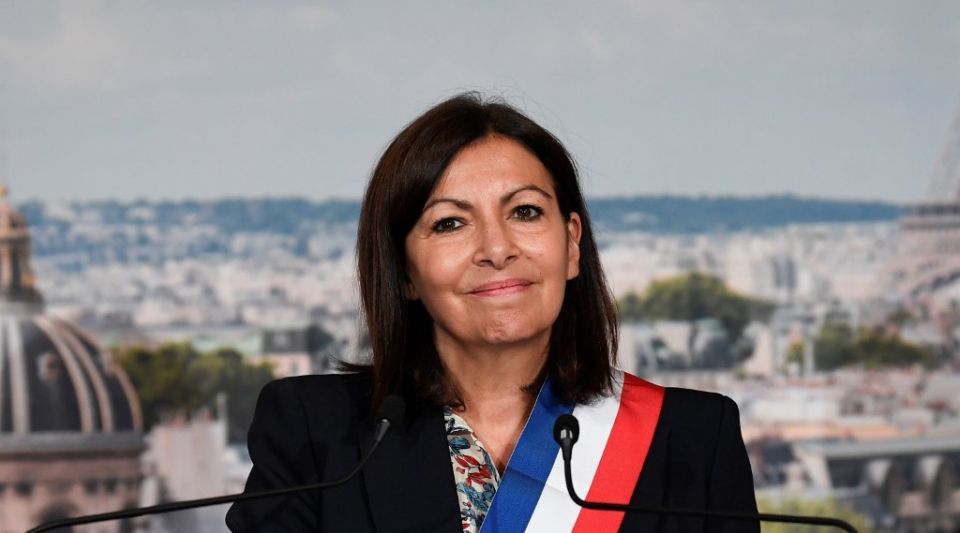
Griveaux: Sex and Videotape
France does not have US-style congressional "midterm elections", but the president and ruling party face similar tests. For Macron, who came to power in 2017, the 2019 European Parliament elections and the 2020 municipal elections, combined, amount to half-way polls.
Eurosceptic and populist far-right parties have historically been outspoken in European Parliament elections. In 2014, the National Front (FN, later renamed the National League RN) won 24.86% of the votes, beating 20.81% of the People's Movement Alliance and 13.98% of the Socialist Party, becoming the "largest party", which really made the party leader Marlene Na Le Pen is quite proud; and in the 2019 election, the newly established Republic Progress Party (LREM), although slightly behind the National League's 23.34% by 22.42%, also won 23 seats, which is a worthy victory. Tie.
Therefore, the 2020 municipal elections are still a great test for the popular support of the ruling party. In this context, Paris has become the most tempting trophy for the RDP. If it can win the capital, which has been in the hands of the Socialist Party for nearly 20 years, it will undoubtedly have symbolic significance. Coupled with the successive setbacks in the administration of the current mayor, it seems that the "change" has a good chance of winning.
Therefore, since the beginning of 2019, the party has been deliberating on who will compete in Paris, and nearly ten people have expressed their wishes successively. Even Prime Minister Philippe has been rumored to intend to appear in person (but he himself later explicitly denied).
Ultimately, government spokesman Benjamin Griveaux emerged as the dominant front-runner in the ruling party. He expressed his willingness early on, and resigned as spokesman at the end of March 2019 to devote himself to the campaign (legally speaking, he served as a member of parliament before he joined the cabinet and resumed his status as a member of parliament after resignation, but he had no time to take care of parliamentary affairs due to the election campaign, so he also criticized).
Although Macron expressed his stance on his party's candidates very late, since then, it has been widely believed that Greveaux, who is determined to win, has the support of Macron himself (Grievaux himself has been so flamboyant in private).
Griveaux's electoral platform typically targets middle-class groups who pursue tranquility and stability: for example, the municipal government provides mortgage subsidies of up to 100,000 euros for families who intend to settle in Paris, creates a municipal supplementary medical insurance system, and reimburses single-parent families. 50 hours of child care a year, installing 5,000 surveillance cameras and noise monitors, suspending construction on all construction sites in the city for six months, doubling fines for uncivil behavior, increasing budgets for rodent control, and more.
Among them, the most eye-catching is his plan to move the Paris Gare de l’Est to the suburbs and build a large green space in the style of New York’s Central Park on the original site.
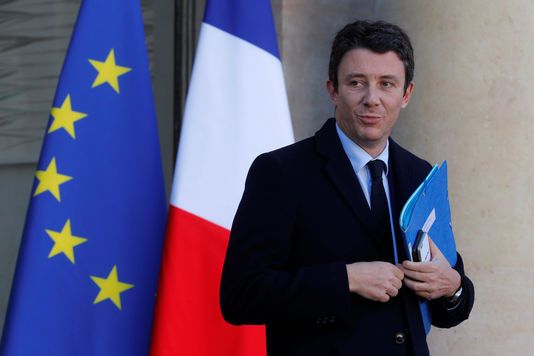
Even though his role as a government spokesman has built up national fame for Griveaux, who entered the race earlier than his opponents (especially to court the Chinese community in France), that fame doesn't seem to translate into prestige .
This embarrassing situation may come from multiple reasons: on the one hand, although Griveaux served in the two governments of Hollande and Macron, he did not show the professional ability to be on his own, and he appeared more in front of the camera. Public relations, but also lack the experience of running the local government. He even evacuated from the office in a hurry during the "yellow vest" protest on January 5, 2019, which was called "the first time in the history of the Fifth Republic that a minister escaped from the office" by Le Monde.
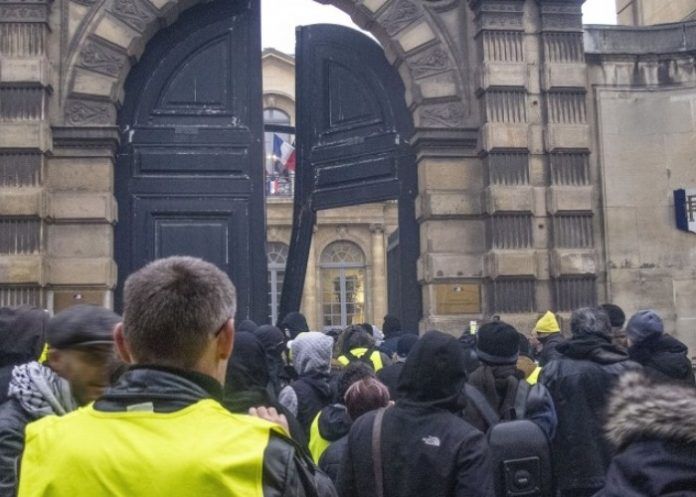
On the other hand, in the process of serving as the government spokesman, he defended his party's position with sharp-edgedness, made frequent rude remarks to his political opponents, and even scolded his party's competitors, which made him lose a lot of points.
In September 2019, Le Parisien bluntly stated in an interview that his image in the minds of critics was "cold, cynical, aggressive".
Until the beginning of 2020, Griveaux was still only third in the polls, with about 15-17% support, far behind his opponents. To make matters worse, the polls have not even shown him any momentum or sign of catching up with his opponent. This embarrassing situation not only disturbed the party, but also kept the challengers under the illusions, which led to the unresolved division.
Until the indecent video was exposed, Griveaux's ambitions were completely ended.
On February 10, an indecent video taken by a mobile phone was leaked to the Internet. The content was that a man was flirting with a woman and masturbating with his naked lower body. The person involved was Griveaux. The publisher of the video is Russian exiled artist Piotr Pavlenski.
This was a devastating blow for Griveaux - after the incident, he raised his hand to admit defeat without any political resistance except for complaining about Pavlensky. The next day after the video scandal spread, he announced his withdrawal. Paris mayoral election.
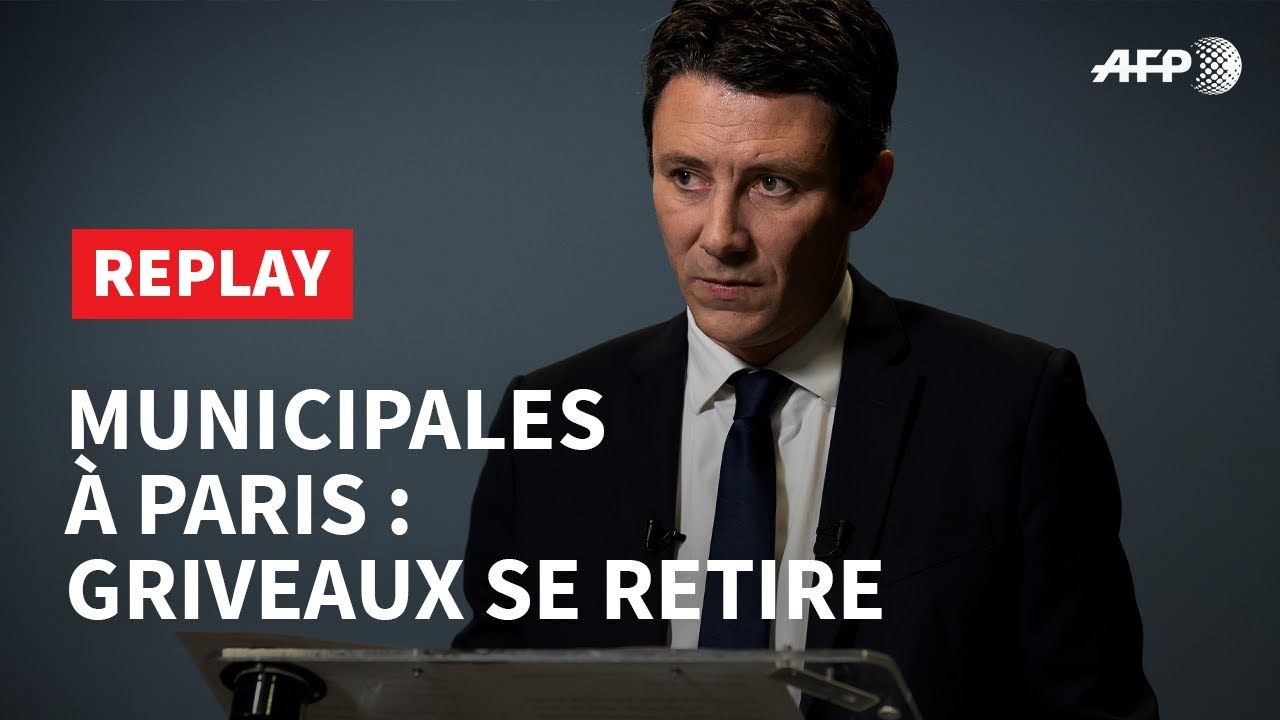
According to Pavlensky, the purpose of his move was to expose the "hypocrisy" of Griveaux's political propaganda based on family values, but the media quickly exposed the intricate insider behind the incident:
Griveaux had sent several indecent videos to law school girl Alexandra de Taddeo, who claimed to be unfamiliar with the other, who was Pavlensky's girlfriend. Pavlensky is a Russian radical artist who was exiled to France, and this method of "spreading black material to stink people" (kompromat) is the usual method of Russian authorities against dissidents and political opponents in the country (the most typical example is 1999). Former Russian Prosecutor General Skuratov was disgraced after being secretly filmed prostitutes); Pavlensky was defended by French lawyer Juan Branco, who had previously vehemently opposed Macron and was in the yellow The vest movement has become so famous, there are even reports that Pavlensky asked Blanco's opinion before distributing the video on the Internet...
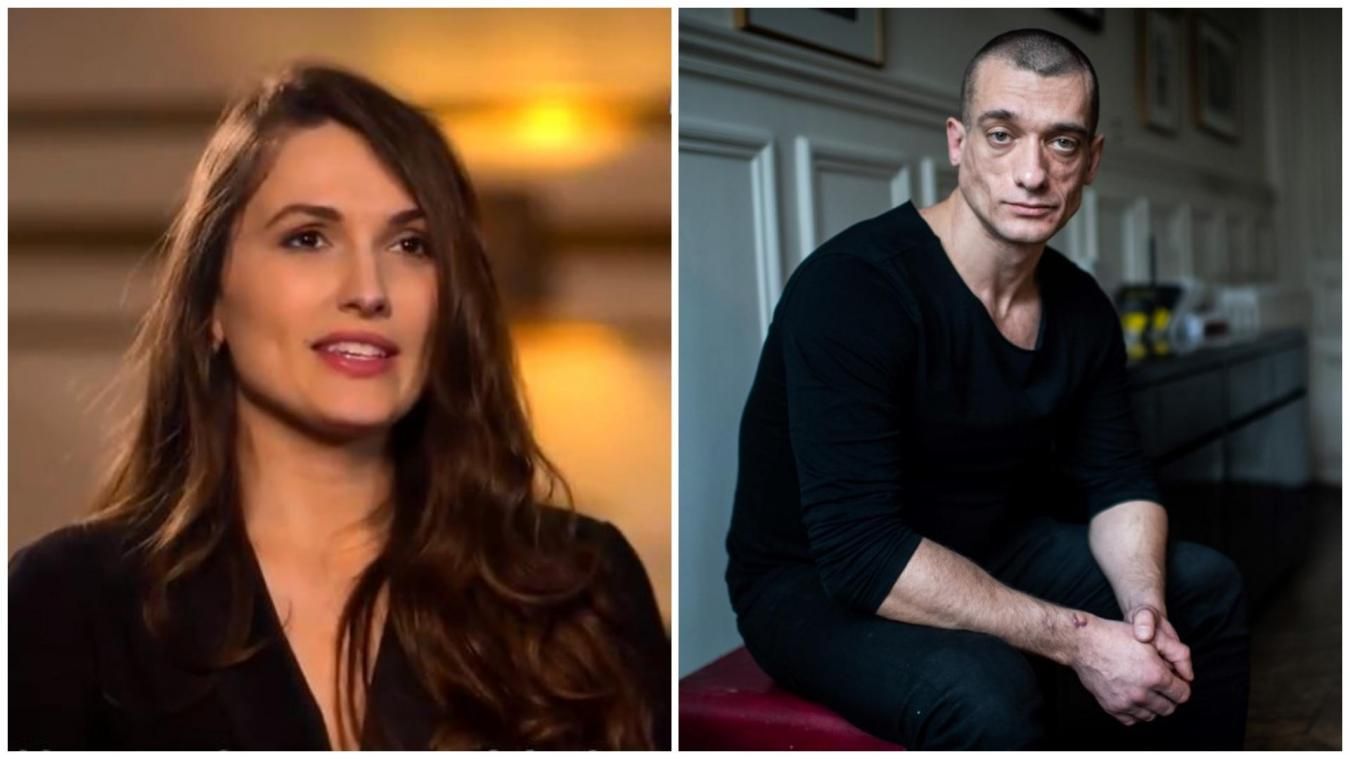
Whether or not there is a "conspiracy" motive behind it, this peach scandal is obviously not as simple as Pavlensky's claim of "killing the people", but the sure result is that it not only made Griveaux run for mayor of Paris His ambitions came to an abrupt end, and his future political career was overshadowed by a heavy shadow.
Another interesting coincidence is that Griveaux was born in the "Kahn Gang" (DSK boys). From 2003 to 2007, he served as an assistant to Dominique Strauss-Kahn, a former socialist leader, and became a member of his small circle. The former head of the International Monetary Fund was once regarded as a The Socialist Party's 2012 presidential contender died in May 2011 after allegedly raping a hotel clerk in New York.
To a certain extent, it can be said that Griveaux repeated the mistakes of his predecessor Kahn. (to be continued)
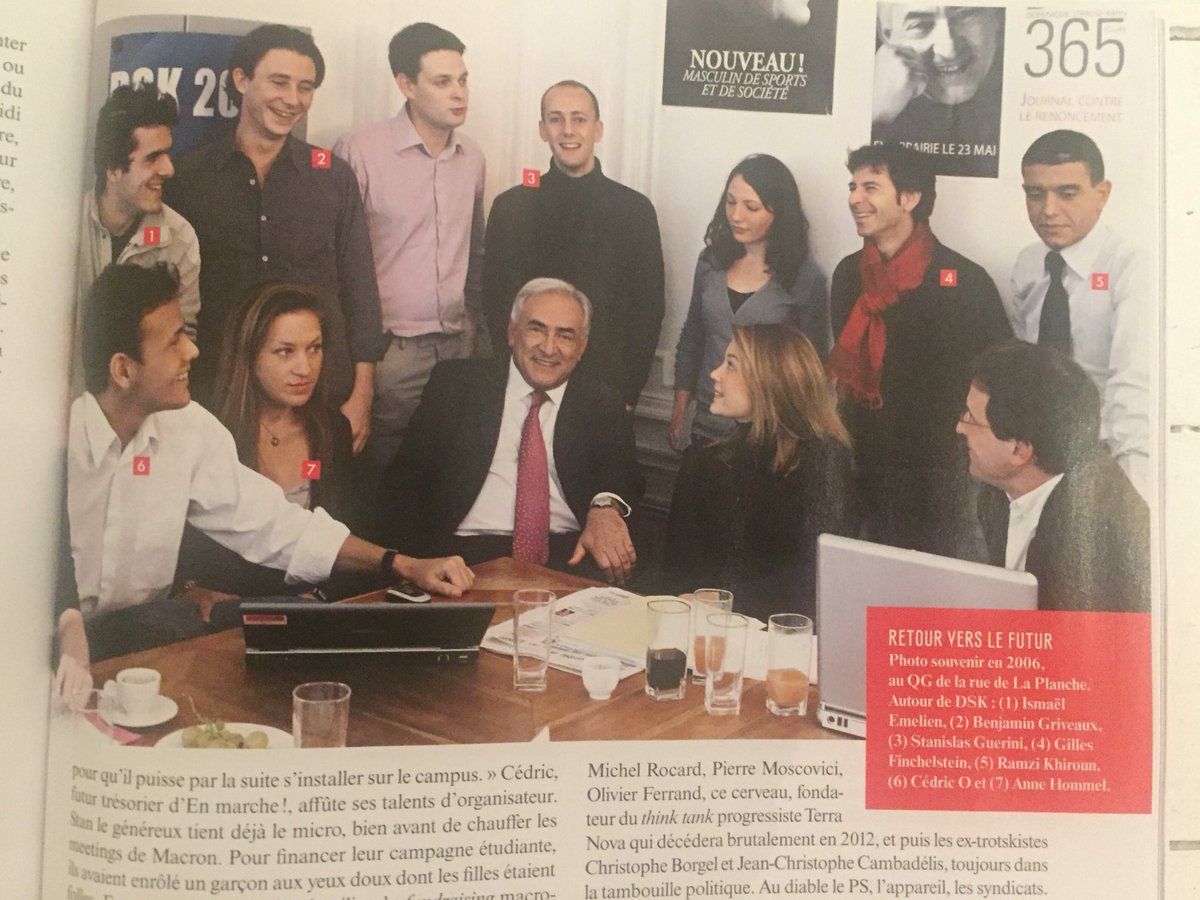
Like my work? Don't forget to support and clap, let me know that you are with me on the road of creation. Keep this enthusiasm together!

- Author
- More